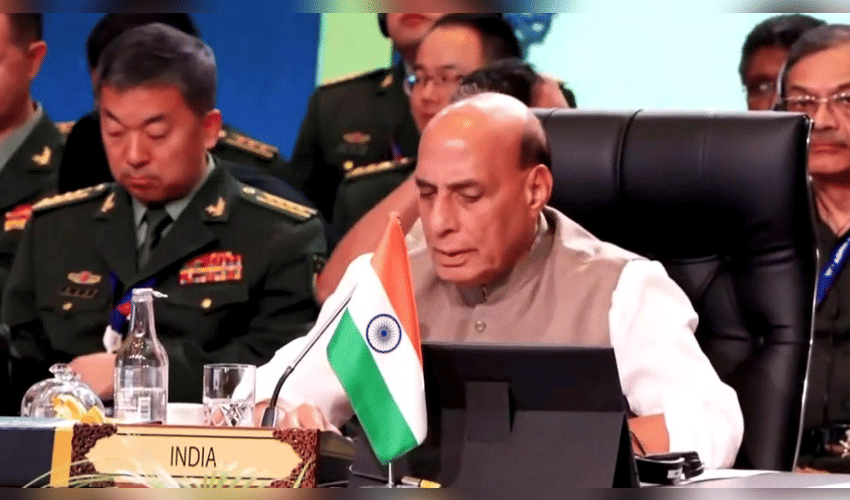News
Rajnath Singh Stresses the Need for a Free and Coercion-Free Indo-Pacific to Ensure Regional Stability

The Indo-Pacific region must remain free from any form of coercion, a principle strongly emphasized by India’s Defence Minister Rajnath Singh amid rising geopolitical tensions in this critical part of the world. Speaking most recently during diplomatic engagements, Rajnath Singh underscored India's commitment to ensuring that the Indo-Pacific remains open, inclusive, and governed by respect for sovereignty and maritime law rather than power plays or intimidation.
Rajnath Singh's statement comes at a time when the Indo-Pacific is witnessing increased strategic competition, particularly with China’s expanding maritime assertiveness and military presence. India advocates for a rules-based order in the region where freedom of navigation and overflight are protected, and no single power can dominate or coerce its neighbors. This vision aligns closely with the interests of multiple nations, including key democracies like Australia and ASEAN countries, which seek stability, security, and mutual trust rather than transactional alliances.
The Indian defence minister has highlighted India’s approach as one that builds partnerships based on trust, cooperation, and shared values rather than opportunistic transactions. During his recent visits to countries such as Australia and Malaysia, Rajnath Singh reinforced the idea that safeguarding the Indo-Pacific requires collective responsibility and robust coordination across nations bound by democratic principles and rule of law.
A notable example of this strategic partnership is India’s deepening defence cooperation with Australia. The two countries have moved beyond mere dialogue to institutionalize operational collaborations, including mutual logistics support, joint maritime surveillance, and interoperability in air and naval exercises. These efforts strengthen regional resilience and collective security architectures that can counterbalance coercive tactics by any state actor. As Singh pointed out, maritime connectivity symbolizes more than physical ties—it is a metaphor for freedom itself, where nations linked by the seas uphold each other’s sovereignty and rights.
India’s vision for the Indo-Pacific also emphasizes inclusivity, welcoming all countries that respect the principles of international law to participate in regional security frameworks. The goal is to create a collective security fabric that deters coercion, promotes peace, and ensures sustainable development.
Rajnath Singh’s recent remarks articulate India’s firm stance that the Indo-Pacific should remain a zone free from coercion and undue influence. This stance is backed by active alliances and strategic collaborations, particularly with like-minded democratic countries, to maintain a stable, resilient, and open regional order. The emphasis on trust, respect for sovereignty, and adherence to maritime laws defines a roadmap for peace and prosperity in one of the world’s most dynamic regions.



